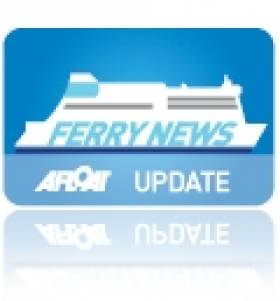Displaying items by tag: Irish Sea Shipping Line 2014
Seatruck Ferries Voted Irish Sea Shipping Line of 2014
#SeatruckAward- Seatruck Ferries was voted Irish Sea Shipping Line of 2014 at the annual Export & Freight Transport & Logistics Awards held in Belfast recently.
This was the second year in succession that the ro-ro freight company was presented with the much coveted award, sponsored by DSV.
A selected group of hauliers were asked to anonymously pick one service which offered the optimum level of service, quality, on-board facilities and choice of routes, registered their votes via a totally secure and carefully policed on-line 'one customer one vote' system.
Those attending the awards ceremony held in the Ramada Hotel heard that "Seatruck has truly stretched the boundaries of traditional shipping services. It remains the only Irish Sea operator solely focused on the transportation of unaccompanied freight."
Among the developments of the operator this year was the replacing in April of Arrow on the Dublin-Heysham route by the much larger "P" series vessel, Seatruck Pace which as previously reported, Afloat.ie interviewed one of her masters.
The vessel's introduction bringing speed, schedule reliability and additional capacity are factors in which the operator confirmed strategic importance to the route.
On the Dublin-Liverpool service, a refit to all freight passenger twin-berth cabins were carried out on the pair of FSG vessels Seatruck Power and Seatruck Progress.





























































